- Home
- Steve Cole
Little Green Gangsters Page 2
Little Green Gangsters Read online
Page 2
In the first weeks at the Rubbish House, my ears were haunted by the humming of the special batteries sucking power from the panels above, the gurgles of our special plumbing, the thrum and hum of the turbine on the roof . . .
And the never-ending crash and banging as Dad made the most of the old, ruined windmill next to the house by installing a ma-hoosive telescope right inside it.
“Great.” Staring up at the giant metal scope, which dominated the ruined mill like some conquering alien robot when it was finished, I could practically hear the tutting from the surrounding streets. “Something else for the locals to complain about.”
Not for the first time, I smelled something fishy going on – and it wasn’t Herbert. But that wasn’t the only smell bothering me. Just lately, that sweet fragrance in the air around the world had changed into something . . . weirder.
“Can you use your telescope to find whatever’s making that funny whiff?” I asked.
“Instruments at the Space Centre have recorded new molecules in the air,” Dad revealed. “Whatever removed the bad stuff from Earth’s atmosphere might have left something else in its place.”
I was stunned. Not really by what Dad was saying, but by the way he was telling me anything at all. Amazingly, incredibly, he was TALKING ABOUT HIS WORK. This officially NEVER happened!
“You’re really worried about things, aren’t you, Dad?” I said quietly.
Dad quickly shook his head. “No! No way. Worry is like junk food for the mind – a greasy burger of Anxiety, or a stinking, floppy hotdog of Not Knowing What To Do,” he said. “It’s bad for the way you think. I prefer the crisp lettuce of Understanding a Problem and the succulent organic tomato of Knowing How to Deal With That Problem.”
I sighed. My mind was hungry for the chocolate dessert of Forgetting All Your Troubles – but unfortunately it was time for the massive bowl of pease pudding and dog’s muck that was my New School.
It’s never easy starting at school halfway through a term. And when people found out I was the kid in the freaky house, they stared at me like I had two heads. I felt like a spaceman who’d landed on an alien world.
Over those first few weeks, I tried to fit in with minimum fuss, but no one seemed very willing to let me – least of all Fist-Face and his mates.
He’s not the nicest of boys, is Fist-Face. You might think he is so-named because his face looks like a fist, but no! His face actually looks as if his neck has thrown up – not pretty! He’s known as Fist-Face because his very favourite thing is punching people in the kisser. Perhaps he’s jealous of normal-faced people who don’t look like their ears stepped in something.
Anyway, if anyone was seen talking to me, Fist-Face gave them a dead arm and promised that something more serious would die too if they ever spoke to me again. Which wasn’t great.
Like the rising smell of yuk in the air, things were starting to stink a little more with every passing day – for both me and the world at large.
I told Dad about the bullying. I’m not sure he was really listening.
“Tim, my worries are kind of bigger, planet-Earth kind of worries.”
“Oh.” In the battle between picked-on son and picked-on planet, I knew Earth would always win in Dad’s eyes.
“Er . . .” Dad must’ve realised what he’d said. “Your worries are important too, of course.”
“Yeah. Thanks, Dad.” I stuffed my hands in my pockets. “That doesn’t make me feel like poo at all.”
“Remember, Tim, we recycle poo in this house. You may feel like you’re being flushed down life’s toilet, but you will re-emerge from fate’s sewer in a stronger and more useful state.”
I blinked. “Dad, I think that was, like, the worst inspirational speech in the history of the world.”
But he was already back looking through his ’scope, in a world – or a universe – of his own.
It turned out Dad had done something nice – he’d invited Nanny Helen (Helen! Just Helen!) round for dinner that night as a treat. It had been three weeks since we’d said goodbye. I’d really missed her.
Dad said he had missed her too, but he seemed distracted that night. The wind-up radio chattered away as he prepared his famous (and not for good reasons) yellow rice sushi.
“. . . the change in the air’s scent has been noticed all over the planet,” the radio voice announced. “Once described as ‘the gentle perfume of Mother Nature’s healing hands’, critics in mountainous Peru are today calling it ‘more like the nasty niff of Mother Nature’s sweaty armpits . . .’”
“It’s hard to describe properly, isn’t it?” Dad mused.
“What?” I smiled cheekily at Helen. “How disgusting your sushi is?”
“The smell in the air,” Dad said seriously. “To me, it smells like musty sheets washed in lemon juice and left to dry in an abandoned Turkish market surrounded by forest fires. What about you, Helen?”
“Oh! Er . . . um . . . I can’t think!” Helen waved her hands in front of her face as if she needed to cool down. “Your go, Tim.”
I thought hard for ages. Then I shrugged. “I can only think of something really dumb.”
“Go on,” said Dad.
“Well . . . I have this funny idea.” I shrugged again. “Just cos we’re human beings, we think everything on the planet was put there for us. So we moan about this smell – but maybe other animals smell it differently.”
Helen grinned. “You mean we should ask Herbert what he thinks of it?”
“Scents disperse more slowly in water than in air,” Dad began seriously, “and they are important to fish. Smells help them identify environments and individuals and—”
“Yeah, OK, Dad.” I didn’t want him hijacking my little effort so soon. “I just mean that . . . well, everyone knows that dung pongs and it’s horrible, right? But a dung beetle must love that smell, cos it eats dung, and rolls it up into balls, and lives off it.”
Helen almost choked on her yellow rice and seaweed. “Huh? You lost me.”
“Dungballs?” Dad was staring into space like he was in a trance. “Dungballs . . . DUNGBALLS!”
“Oh, no, Eric!” said Helen. “I wouldn’t say your sushi was that bad!”
We all laughed. Even Dad smiled. This was turning out to be a pretty good night.
“Right, my turn,” said Helen. “OK, then – I reckon this whiff smells like old socks boiled in cocoa that’s gone off a bit, right, then left in the spare room of my new family’s house, which – OMG – it really reeks, I’m telling you . . .”
“Your new family?” I squeaked.
Suddenly this was NOT pretty good. It was ugly bad.
“New kids to look after, yeah . . . Starting next week.” Helen smiled sadly. “Course, they won’t be as nice as you, Tim! But, well, you know . . .” She glanced at my dad. “A girl’s got to eat.”
I glared at my dad. Had he known about this?
But Dad looked pale, still staring into the distance. Still muttering about dungballs.
I hope you’ll agree, I had one or two pretty pongy problems.
But, it soon turned out, some people had things even worse.
There was once a village called Tradnensky. Heard of it? Tradnensky stood for over three hundred years in the snowy wilds of Russian Siberia, three time zones and two thousand miles east of Moscow.
A lot of people lived there – farmers and fishers and old folk, mainly. The biggest problem they had to deal with was the cost of ammo for their rifles, which made hunting kind of expensive.
Then one afternoon in May – just a couple of days after Not-Nanny-Just-Helen had dropped her bombshell – an insane rush of yellow goo fell from the sky and the entire place was swept clean away.
Or rather, it was swept messy away.
“It was like a tidal wave, only from out of the sky,” one shocked eyewitness said. “And it was yellow. And it stank.”
Houses fell apart in t
he sudden flood. Cars were crushed like old cans. Belongings were washed away in the dark, sticky torrents until they dissolved or washed up in the snow. Dozens of lakes in the area turned yellow. Thousands of fish were finished off in moments – they floated to the surface and burst into flames.
The news footage kept showing a wide-eyed Siberian girl, who spoke of the catastrophe with a haunting eloquence (and English subtitles):
“Mother Nature has made the sky sick on us! She says, ‘I get you! Boom, you’re going down, human beings, she says! Boom, boom, I’m Mother Gangster now. Bye-bye human rubbish on my skin! I pop a cap in yo butt! Yeah! BOOM!’”
I woke up the next day and I had overslept. Massively. It was ten in the morning and school was going on without me.
Why hadn’t Dad woken me?
I heard him on the phone, downstairs.
“I’ve been warning you that something like this would happen.” His voice was quiet and very serious – this was the equivalent of a normal human shouting his bum off, and three-and-a-half times as scary. “I told you about the particles in the air forming a kind of code, and I warned you the invisible sightings were real. Well, now you HAVE to believe me . . . No! The government can cover up the evidence but we must make the hyper-beam project a new priority . . . The governments of the world HAVE TO meet this threat . . . Yes, I WILL go public on this if I have to . . .”
Dad hung up at last, and cold-sweat chills corkscrewed down my spine. I didn’t know what was going on, but Maths, PE and a dead arm from Fist-Face suddenly seemed incredibly appealing.
I got dressed and went downstairs. The news was still full of the explosive downpour in Siberia. “Samples of the yellow downpour have been gathered at last, but so far, they have experts stumped. The substance resists all attempts at analysis . . .”
“Hello, Tim,” said Dad calmly.
“I’m late for school.” I’m pretty good at stating the obvious. “Really late.”
“That’s OK. I think you should leave school anyway.”
I blinked. “What?”
He shrugged. “I don’t believe there’s much point in your going any more.”
“WHAT?”
“I’m not going to go to work, either. We’ll stay home together. OK?”
“OK . . .”A chill buzzed through me. “Uh, Dad? What do you think the yellow stuff is?”
“I’m not sure. But I don’t think this incident will be the only one. I think there’s more to come.”
“Why?” I asked.
But Dad didn’t answer, because the breaking news on the TV was that in Europe, half of Luxembourg had been buried under a colossal silver blanket that had fallen out of the sky.
“We’re in trouble,” said Dad.
SKY FALLS IN ON
LUXEMBOURG.
That’s what one newspaper said.
LUXEMBOURG BURIED
BY CLOTH FROM SPACE,
said another.
BAD LUCK-SEMBOURG IN
EURO-SQUELCH!
said yet another.
(Although Dad didn’t buy that one.)
FREAK EVENT SMOTHERS CITY,
said one of the boring, serious newspapers.
The Big Blanket, as it soon became known, wasn’t really a blanket – there was no stitching, and it couldn’t have been made by any factory on Earth. The Big Blanket had flattened several buildings and where its edges trailed the ground, cars had crashed into it. Eyewitnesses described it as “definitely metal, only watery and mixed with smoke”. Or, “shiny with ripples . . . Not Ripples like the chocolate bar – I mean like rippling liquid . . . only solid”. Or, “it was roughly smooth and narrowly thick and soaking wet except when you touched it, when it tingled dryly”. No one seemed able to actually describe it.
Dad nodded to himself. “Knew it! Something else that defies analysis.”
I looked at Dad. “You know that time I said the smell in the air was like something maybe not meant for human noses?”
“Dungball day,” Dad remembered.
“Yeah, well . . . that’s a bit like this stuff. It can’t be understood properly by any of our senses. Like it’s . . . it’s . . .”
“Alien?” Dad looked at me coolly. “Yes. I think this stuff is alien too.”
I squeaked like a field mouse in the beak of an owl. “You do?”
He nodded.
“You think aliens are real?”
“I know they are, Tim,” he said quietly. “Some have visited our world . . . and some have stayed.”
I was gobsmacked. Well, actually I was gob-struck-with-a-thermonuclear-warhead. Proper, actual, ALIENS? Did that mean there really was something to Dad’s age-old tale I’d been dropped on his doorstep from outer space? I wanted to say something, but the words shrivelled on my tongue.
“These latest UFOs have been very different, though,” Dad went on. “An unknown race that take ‘alien’ to a whole other level.” It was almost as if he’d forgotten I was there, and just needed to let things out. “The particles are like nothing our science has ever discovered. It may be that what we think of as a ‘smell’ is something very different to alien senses.”
Wow, I thought. “You mean, to them, the smell could actually be a taste? Or something they can see?”
Dad started at the sound of my voice. “Er . . . yes, like a pattern. A kind of code, if you like. Delivered into the air somehow . . . a message most likely for our attention.”
That was a hard one to get my head around perhaps. (Or to get my nose around, if I was an alien.) “A code or a message . . . saying what?”
“I have no idea,” Dad admitted. “I want to find out, but the Space Centre don’t believe my theories. They think I’ve gone bonkers.”
“Have you?”
“Let’s hope so.”
A long, scary, wondering moment passed between us at the approximate speed of a drugged tortoise doing forward rolls through treacle.
“Is this why you don’t want me to go to school?” I managed to say at last. “You’re worried about me?”
“Er, well, a bit,” said Dad unconvincingly. “Actually, I need you home to help with my experiments here.”
I frowned. “But I’m no use at science.”
“Don’t worry. I’ll show you what to do,” Dad said. “It might even be fun!”
It wasn’t, of course.
Unless your idea of fun is shivering out in the back garden all night every night for a (BORING!) week, taking spectrographic weirdographs through a telescope at intervals of precisely forty-two seconds.
To stop me falling asleep in the early hours, Dad kept me up by calling me on a walkie-talkie. BLEEP-BLEEP! SQUAWK! it blared, making me jump. He was working in the lounge. Not that you could do much lounging there now he’d set up all these big machines to analyse every iota of the mysterious particles. He needed my scans to keep the machines number crunching; it was the only way to work out what the code might be saying.
It took less effort to work out what the neighbours were saying. Between all the squawks and bleeps and the whoosh of the windmill’s sails and the groaning THRUMMM of the solar batteries trying to make enough electricity to cope with everything day and night, the Rubbish House was no longer just an eyesore. It had become an earsore too.
“If we’d known you noisy beggars were moving in we’d have sold up and cleared off!” said the neighbours to our left.
And as the days passed with no more weird indescribable things dropping from the sky, I wondered if maybe the danger was past. Then I began to wonder if it had ever existed.
What if it turned out Dad had gone crazy? He might get arrested. I might have to go to a children’s home. Herbert would go back to a pet shop (or into training for the Loopy Fish Olympics).
Even the Rubbish House and nights spent slaving over a hot weirdoscope would be better than that.
The school phoned a couple of times, but Dad refused to pic
k up. He’d told the head that I was taking a leave of absence for the foreseeable future. He wasn’t prepared to waste any more time or mind power on arguing the toss with “small-minded officials”.
I wondered if the head would send someone round to talk to us, like social services, or the police.
In fact, a couple of people did come to call. But the head had nothing to do with it . . .
I’d been sleeping most of the day after yet another staggeringly dull and noisy night wrapped up in the windmill, working the telescope. When I woke up, stiff and sore around four o’clock in the afternoon, I hoped that Dad would crack his code soon. Or just crack up, if he had to, so he could start getting better and I could start sleeping and acting normally again.
BONG! The doorbell rang. I waited for Dad to open the door. He didn’t.
“Dad?” I called. Nothing.
I got up in my pyjamas and looked in Dad’s room. Empty.
BONG! The doorbell chimed again. Who could be calling?
In my half-awake stumble down the stairs I remembered coming home from school in the old days to Not-Nanny-Just-Helen. I always used to roll my eyes, because the moment she answered the door she would squeal, “OMGeeeeeeeee!” and grab me in a hug. It had always seemed a bit of an overreaction considering I came home at the same time every day. Now, I missed her and the hugs horribly.
Through the glass panel of the door, it looked like someone was waiting with their arms open now. It’s Helen, I thought, still in my daze. Helen! I scrabbled at the bolts and threw open the door . . .
To find Darren “Fist-Face” Gilbert stepping forward, arms reaching out to grab me.
“Hiding away in your freak-hole, Goosefart?” he sneered.
I yelped, suddenly wide awake. On the drive behind Fist-Face I saw his oversized chief thug, Lardy, and a crowd of kids from school. From the gloating grins on their faces I guessed they weren’t members of the Timothy Gooseheart fan club.
I slammed the door and jumped backwards. Fist-Face banged on the door. “Chicken! Open up!”
“Er, no!” I said wittily. My heart had grown fists and was thumping my ribcage like a heavyweight. “My Dad’s upstairs. He’ll get you.”
“We saw your dad go out ages ago, loser,” Lardy informed me.

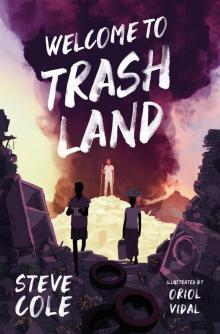 Welcome to Trashland
Welcome to Trashland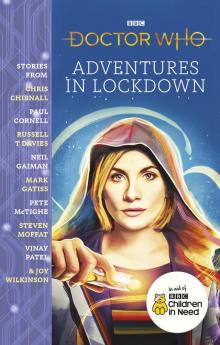 Doctor Who: Adventures in Lockdown
Doctor Who: Adventures in Lockdown Doctor Who: The Knight, The Fool and The Dead (Doctor Who: Time Lord Victorious)
Doctor Who: The Knight, The Fool and The Dead (Doctor Who: Time Lord Victorious) Doctor Who - Combat Magicks
Doctor Who - Combat Magicks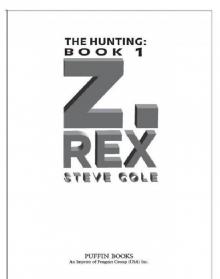 Z. Rex
Z. Rex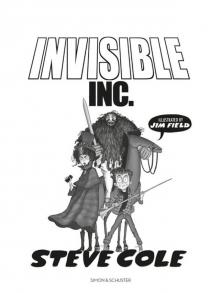 Steve Cole Middle Fiction 4
Steve Cole Middle Fiction 4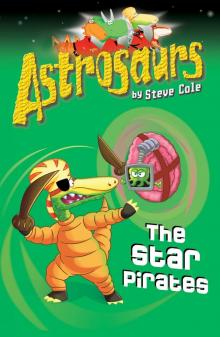 Astrosaurs 10
Astrosaurs 10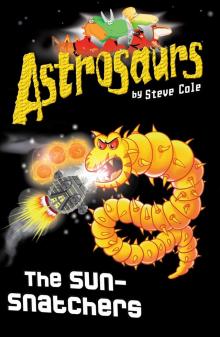 Astrosaurs 12
Astrosaurs 12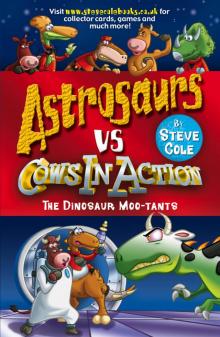 Astrosaurs Vs Cows In Action
Astrosaurs Vs Cows In Action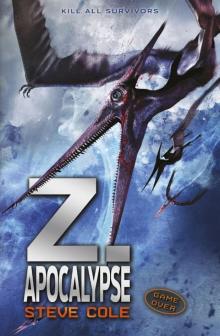 Z. Apocalypse
Z. Apocalypse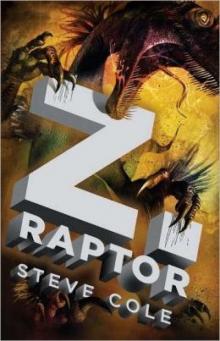 Z. Raptor
Z. Raptor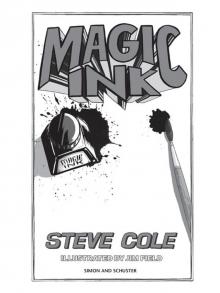 Magic Ink
Magic Ink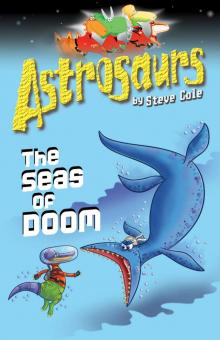 Astrosaurs 3
Astrosaurs 3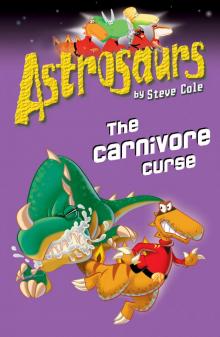 Astrosaurs 14
Astrosaurs 14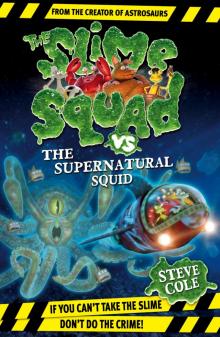 Slime Squad vs. the Supernatural Squid
Slime Squad vs. the Supernatural Squid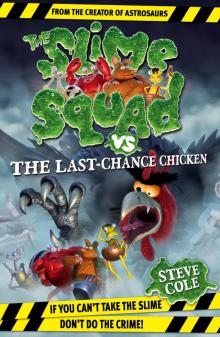 Slime Squad Vs the Last Chance Chicken
Slime Squad Vs the Last Chance Chicken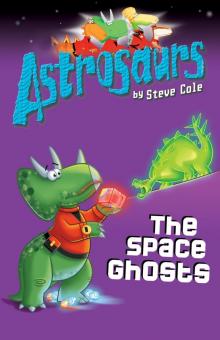 Astrosaurs 6
Astrosaurs 6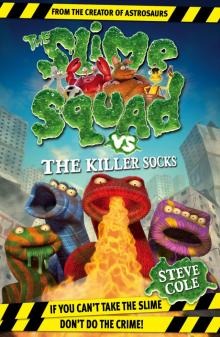 Slime Squad vs. the Killer Socks
Slime Squad vs. the Killer Socks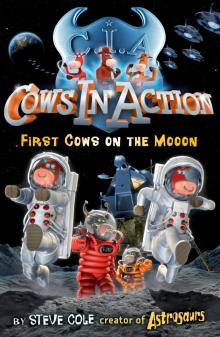 First Cows on the Mooon
First Cows on the Mooon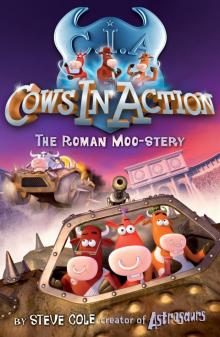 Cows in Action 3
Cows in Action 3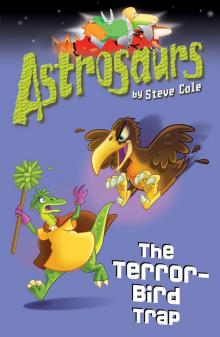 Astrosaurs 8
Astrosaurs 8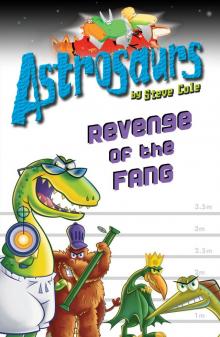 Astrosaurs 13
Astrosaurs 13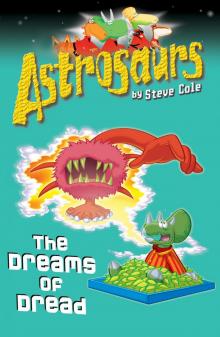 Astrosaurs 15
Astrosaurs 15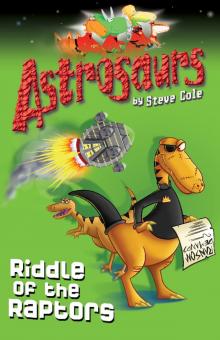 Astrosaurs 1
Astrosaurs 1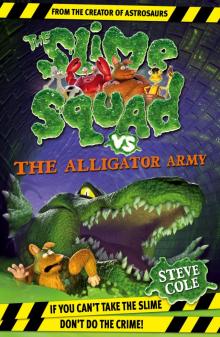 Slime Squad Vs the Alligator Army
Slime Squad Vs the Alligator Army Astrosaurs 20
Astrosaurs 20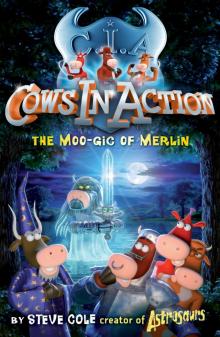 Cows In Action 8
Cows In Action 8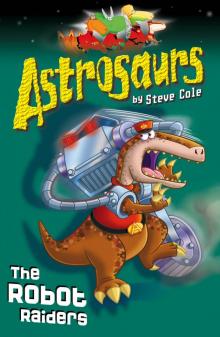 Astrosaurs 16
Astrosaurs 16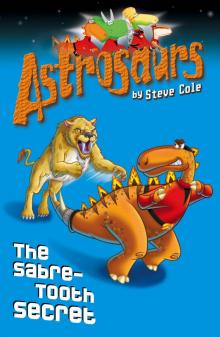 Astrosaurs 18
Astrosaurs 18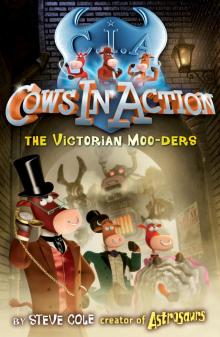 Cows In Action 9
Cows In Action 9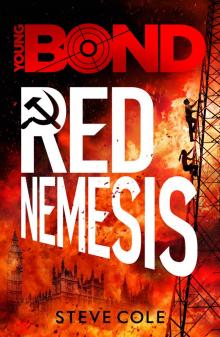 Young Bond
Young Bond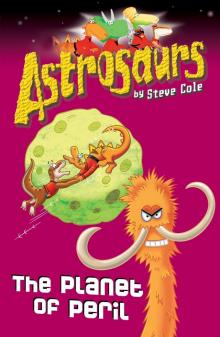 Astrosaurs 9
Astrosaurs 9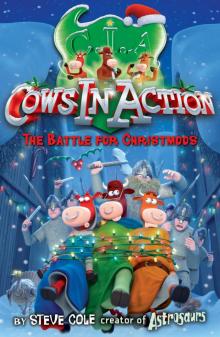 Cows In Action 6
Cows In Action 6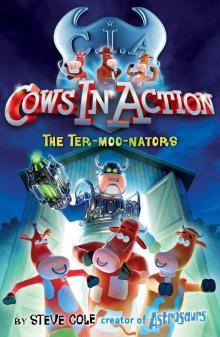 Cows in Action 1
Cows in Action 1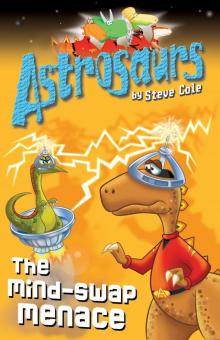 Astrosaurs 4
Astrosaurs 4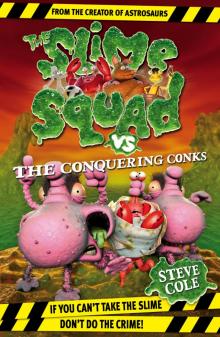 Slime Squad vs the Conquering Conks
Slime Squad vs the Conquering Conks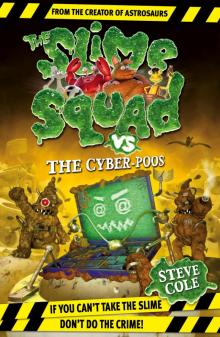 Slime Squad vs. the Cyber-Poos
Slime Squad vs. the Cyber-Poos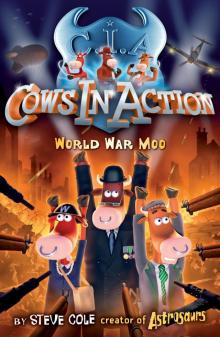 Cows in Action 5
Cows in Action 5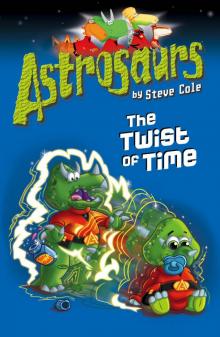 Astrosaurs 17
Astrosaurs 17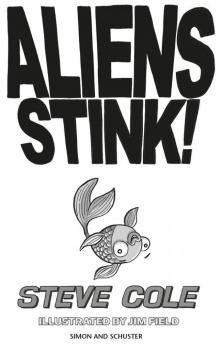 Little Green Gangsters
Little Green Gangsters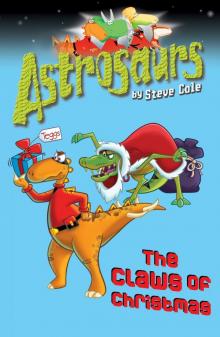 Astrosaurs 11
Astrosaurs 11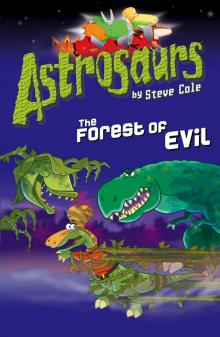 Astrosaurs 19
Astrosaurs 19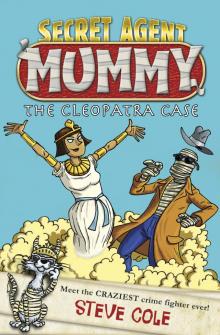 Secret Agent Mummy
Secret Agent Mummy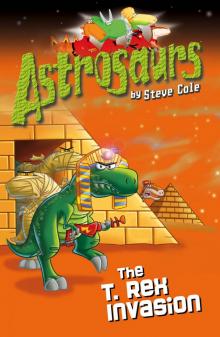 Astrosaurs 21
Astrosaurs 21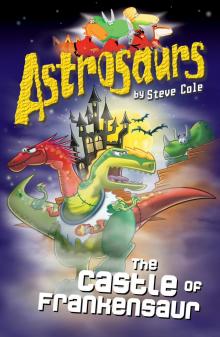 Astrosaurs 22
Astrosaurs 22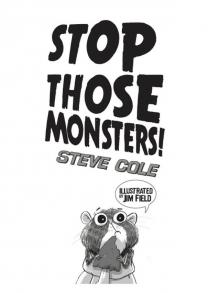 Stop Those Monsters!
Stop Those Monsters!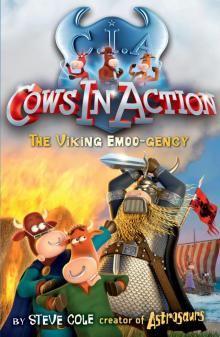 Cows in Action 12
Cows in Action 12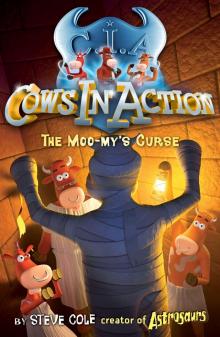 Cows in Action 2
Cows in Action 2